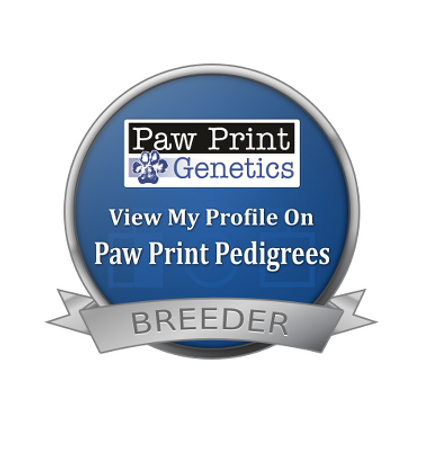White Sand
English Golden Retrievers & Maine Coons
Congenital Ichthyosis 1 and 2 in Golden Retrievers
Quick Summary
Congenital ichthyosis is a skin condition in which the outer layer of the skin does not form properly and results in scaling. The condition often progresses to large patches of thickened, black, scaly skin. Two genetic variants have been associated with congenital ichthyosis in the Golden Retriever.
Ichthyoses are a group of genetic skin disorders characterized by defects in the formation of the stratum corneum (the outer layer of the epidermis) that result in scaling of the skin and desquamation (shedding of the outer layer of the skin, or more colloquially, skin peeling). In the Golden Retriever, symptoms of a breed-specific ichthyosis include mild to moderate, and in some cases severe, generalized scaling on the body, usually excluding the head, extremities, paw pads, and nose. The scales are initially a whitish color but becomes pigmented, progressing to gray or black, and they range in size from small to large. These scales may give the dog’s hair and skin a “dirty” look, especially as the pigmented scales shed and adhere to the coat. Age of onset is generally early: clinical signs have been detected as early as 3-6 weeks of age in some dogs, although in others, the signs may not become readily apparent until months or even years later. Early symptoms of the disease may go unnoticed by owners due in part to their subtly and the less severe symptoms noted in the Golden Retriever when compared to other dog breeds.
Phenotype: A skin condition that results in a mild to moderate and in some cases severe scaling of the skin, usually excluding the head, extremities, paw pads, and nose. Scales become pigmented, progressing to gray or black, and range in size from small to large. These scales may give the dog’s hair and skin a “dirty” look as the scales progress to a darker color.
Mode of Inheritance: Autosomal recessive
Alleles: N = Normal, Ich1* = congenital ichthyosis 1 variant, Ich2 = congenital ichthyosis 2 variant
Breeds appropriate for testing: Golden Retriever
Explanation of results:
• Dogs with N/N genotype do not have either of the known Ichthyosis variants
• Dogs with N/Ich1 or N/Ich2 genotypes are carriers of the ichthyosis variant found in Golden Retrievers but will not develop ichthyosis. If two carriers are mated, approximately 25% of the puppies are predicted to develop disease and 50% are predicted to be carriers.
• Dogs with Ich1/Ich1 or Ich2/Ich2 genotype are homozygous for the ichthyosis variants found in Golden Retrievers and are expected to develop ichthyosis, although the presentation may be variable.
Below are examples of how a Paw Print Genetic DNA test result looks. Our dogs are CLEAR for genetic disorders in English Golden Retrievers.



Golden Retriever PRA GR-PRA1 & GR-PRA2
Description:
Progressive Retinal Atrophy (PRA) is a category of genetic mutations that cause vision loss and blindness. Photoreceptor cells in the retina begin to degenerate, typically progressing from a loss of night vision to complete blindness.
PRA affects many different dog breeds, and these mutations are breed-specific. In Golden Retrievers, two mutations have been identified in addition to prcd-PRA known as GR-PRA1 and GR-PRA2.
Both GR-PRA1 and GR-PRA2 are inherited in an autosomal recessive manner. This means that a dog must inherit a copy of the mutation from each parent to be affected by the disorder. Dogs with one copy of the mutation will not show any signs or symptoms of PRA, however, they can still pass on that mutation to any offspring.
DNA testing is important to ensure that two carriers are not mated together, as carriers of the GR-PRA mutations are asymptomatic. It is generally not recommended to remove carriers from a breeding program to maintain genetic diversity within the breed.
To learn more about Paw Print Genetics and where we have our dogs tested please visit their website by clicking here: Paw Print Genetics
